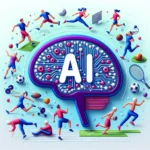Artificial Intelligence (AI) is revolutionizing various sectors, and education is no exception. By integrating AI in educational systems, institutions worldwide are experiencing significant improvements in both teaching methodologies and student learning experiences. This article delves into the multifaceted role of AI in enhancing educational outcomes, focusing on personalization, accessibility, and administrative efficiency.
Personalized Learning Experiences
One of the most profound impacts of AI in education is its ability to create personalized learning experiences. Traditional education often follows a one-size-fits-all approach, which may not cater to individual student needs. AI-driven systems can analyze a student's learning patterns, strengths, and weaknesses to tailor educational content accordingly.
Adaptive Learning Platforms
Adaptive learning platforms utilize AI algorithms to assess a student's performance in real-time. These platforms can adjust the difficulty level of tasks and provide additional resources based on individual progress. For instance, platforms like DreamBox and Knewton are pioneering adaptive learning, offering customized lessons that ensure students master concepts before moving forward.
Intelligent Tutoring Systems
Intelligent Tutoring Systems (ITS) employ AI to simulate a one-on-one tutoring experience. These systems provide instant feedback and guidance, helping students resolve doubts without waiting for teacher intervention. AI tutors like Carnegie Learning’s MATHia leverage extensive educational data to offer personalized and effective tutoring solutions.
Enhancing Accessibility
AI is also breaking down barriers to education by enhancing accessibility for all students, including those with special educational needs. Through AI-driven tools and resources, education is becoming more inclusive and tailored to individual requirements.
Speech and Text Recognition
AI-powered speech and text recognition tools can transcribe spoken words into text, aiding students with hearing impairments or those who benefit from visual learning modes. Technologies like Google's Live Transcribe and Microsoft's Immersive Reader are already making classrooms more accessible.
Assistive Learning Devices
Assistive learning devices equipped with AI can provide customized support to students with various disabilities. For example, AI-driven apps can convert text to speech for visually impaired students or offer real-time translation services for non-native speakers, bridging the gap in understanding and communication.
Administrative Efficiency
Beyond the classroom, AI is streamlining administrative tasks, allowing educators to focus more on teaching and less on paperwork. Efficient management of administrative processes contributes significantly to the overall educational experience.
Automated Grading Systems
Automated grading systems leverage AI to evaluate assignments and exams, saving valuable time for educators. These systems can provide timely and unbiased grading, ensuring consistent assessment standards. Platforms like Gradescope utilize AI to streamline grading processes for large-scale educational institutions.
Data Management and Predictive Analysis
AI-based data management systems help schools and universities maintain organized records, track student progress, and predict future trends. Predictive analysis can identify students at risk of falling behind, enabling early interventions and personalized support. AI tools like IBM's Watson Analytics provide insightful data-driven decisions for educational institutions.
Challenges and Ethical Considerations
While AI offers significant advantages, it's essential to address the challenges and ethical considerations associated with its implementation. Issues such as data privacy, employment displacement, and the digital divide need careful consideration to ensure fair and equitable use of AI in education.
Data Privacy and Security
With AI systems collecting vast amounts of data, safeguarding student information is paramount. Educational institutions must adopt robust data privacy policies and employ encryption protocols to protect sensitive information from unauthorized access.
Addressing the Digital Divide
To fully benefit from AI in education, equal access to technology is crucial. Bridging the digital divide by ensuring all students have access to necessary devices and high-speed internet should be a priority. Initiatives to provide affordable technology and connectivity are vital in achieving inclusive education.
The Future of AI in Education
The integration of AI in education holds immense potential for transforming traditional learning environments. As AI technologies continue to evolve, we can expect even more innovative applications designed to enhance educational outcomes. By addressing challenges and ethical considerations, the future of AI in education promises a more personalized, accessible, and efficient learning experience for students and educators alike.


